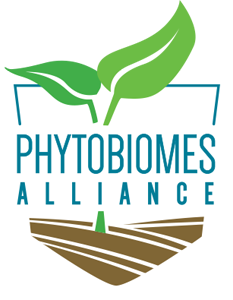
Soledad Benitez Ponce

Role in Phytobiomes Alliance
Controlled Environment Working Group, Coordinating Committee
Affiliation
Ohio State University
Position
Associate Professor, Phytobacteriology
Research Interests
The Benitez Ponce laboratory studies plant-associated bacteria, and communities of other microorganisms, within agricultural systems. Our work has been focused on crop diversification in agronomic crops, leafy green hydroponics, with additional projects on microbial inoculants.
Specifically, we work on questions related to:
- Agricultural management effects on plant-associated microbial communities and their relationships with plant vigor and plant disease incidence.
- Endophytic microbiome establishment and factors affecting endophyte microbiome composition.
- How these complex interactions (e.g. management practices and microbial community dynamics) contribute to the success and stability of microbial inoculants.
To this extent, my laboratory applies high throughput molecular techniques and bioinformatic approaches to characterize the diversity and function of microbial communities in plants and the environment in which they grow. We combine this with field and greenhouse experimentation, on-farm surveys, and single isolate characterization; and integrate our results through multivariate data analyses.
Website
https://plantpath.osu.edu/our-people/m-soledad-benitez-ponce
Additional Links
benitezponce.1[at]osu.edu
Current Phytobiomes-related Projects
Our lab specializes in studies of diversity and function of soil and plant-associated microorganisms and their contributions to plant growth. We are interested in understanding mechanisms through which agricultural practices contribute to the build-up of beneficial plant-microbial associations. As part of this, our laboratory works on three main projects.
- Crop diversification in corn and soybean production
In our laboratory we study crop rotation and cover crops within corn and soybean production, and our work builds upon replicated research plots at various research stations. As part of our research, we have documented that the crop rotation combination and the rotation length impact crop biomass and yield in a site-specific manner. We also observed that the same rotational sequence impacts differently soybean and corn. For example, a three-year rotation of corn – soybean – wheat (CSW) results in a yield increase in soybean and a yield decline in corn. In addition, the CSW promotes subtle changes in the bacterial and fungal community composition. For instance, a subset of bacteria has been associated with the CSW rotation and correlate with increased soybean yield and changes in soil organic matter. Similarly, twenty fungal taxa have been identified as indicator species of the CSW rotation. Finally, across three experimental stations, we observed that the fungi associated to the two-year corn-soybean rotation (CS) tend to belong to plant-pathogenic. Finally, we have integrated cover crops within our rotation experiments in the field, in order, to evaluate rotation and cover crop interactions.
We are also studying microbial-microbial interactions that influence disease development in soybean. We are characterizing fungal communities in production farms across Ohio and correlating fungal community structure with soil characteristics, management practices, and soybean cyst nematode incidence.
- Microbiome dynamics in hydroponic production
In the past three years, we began our research in leafy-green hydroponics. Because of our ability to manipulate hydroponic systems, we use them as models to study the dynamics of microbial colonization in plants, and other surfaces, including questions of endophytic establishment in leafy greens. Through funding from USDA NIFA, we have learned that hydroponic growers in Ohio use diverse production practices, that system design is the main driver of microbial community composition; and that different locations within the recirculation system harbor distinct bacterial communities. This work brings new questions in microbial ecology to our research, and future projects will focus on biofilms and their role in the ecology of these production systems.
- Microbial inoculants and complex interactions
The success of microbial inoculants in agriculture is dependent on environmental variables and management practices, as complex interactions occur in the plant-soil interface. In our laboratory we work with inoculants from well-established and commercially available beneficial microorganisms, including arbuscular mycorrhizal fungi (AM) and Trichoderma spp. For example, one of our recent graduates Rawal et al. 2022 demonstrated that species of Trichoderma, locally adapted to drier environment conditions, protected plants against drought stress. In addition, we use RNA sequencing to study the mechanisms that contribute to plant growth upon microbial inoculation under variable conditions.
